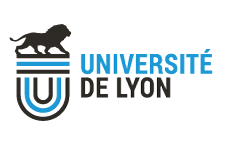WP-5
Image-based Simulation and Modeling
Modeling and numerical simulation have become mandatory to address a large variety of problems in biomedical sciences, from the understanding of complex biological systems to the design of high-tech imaging devices and the planning of radiation therapy (RT) treatments. They play a major role in exploiting and improving existing imaging modalities, as well as in the emergence of new imaging concepts (e.g., design and development of new instrumentations; testing of new reconstruction algorithms). The main related challenges are the development and experimental validation of versatile, accurate and fast simulation tools, making it possible to address problems of increasing complexity.
Several international initiatives, including EU-Heart or VPH (Virtual Physiological Human network of excellence) develop methodologies for digital, personalized and predictive medicine in the 21st century. The accuracy of the numerical models provided to the simulators is central in simulation and modeling. Patient-specific models derived from CT or MRI have increased applications in simulation in various domains. Accurate prediction of the dose deposition in a patient by therapeutic or imaging irradiation is also a major healthcare challenge, as illustrated by several European projects (ENVISION, ULICE, PARTNER). The intensive computing task in simulation requires another step in the abstraction of resources with respect to applications. Large-scale platforms based on the aggregation of large clusters (Grids such as EGI, Teragrid, Décrypthon), huge datacenters (Clouds such as Amazon Web Services, Rackspace) or collections of volunteer PC (Desktop computing platforms) are now available for researchers.
Moreover, partners actively participate to the NoE VPH and have expertise in several imaging modalities including MRI, CT, PET, ultrasonic image and future modalities. Compared to other platforms, multi-modality is the main originality, as illustrated by the Virtual Imaging Platform project (VIP). Image-based models have been used in simulations in various applications, to take into account the effects of posture on the position and shape of abdominal and thoracic organs for more accurate simulations.
The LabEx partners are also involved in the European-funded project ENVISION, started in 2010, in which WP6 is dedicated to simulations in hadrontherapy, and one of the major output will be a comparison and evaluation of these various codes.
A special focus is made on two open-source platforms: Virtual Imaging Platform project (VIP) and GATE, based on Geant4 Monte Carlo toolkit, used by more than 1500 users worldwide. Researchers in this WP actively contribute to this platform and to the GATE-Lab, an online platform to run GATE on distributed computing resources. Regarding high performance computing, partners bring a solid and internationally recognized expertise, e.g., development of DIET used by the Décrypthon project and has been the basis for creating the Sysfera spin off, parallel and distributed programming model workflow scheduling, cloud optimizations, and desktop computing systems, facilitated access to grid for simulations.
Another objective of this WP is to develop biomechanical and geometrical models of the patient to simulate organ motion during breathing, and of the treatment room to secure the treatment.
This work-package follows the vision that, at the horizon of 2020, advances in modeling and simulation will have made a new style of healthcare possible, in which each patient would bring his/her own personalized digital avatar built from in vivo images and usable in simulated treatments or imaging for planning purposes. It will develop specific tools for multimodality virtual imaging, dose deposition simulation, modeling of virtual tissues, organs and tumors, patient specific modeling, including biomechanical or electrical modeling.
In addition, this WP will address high-performance computing, data storage and data mining problems. Advances in simulation offer new perspectives for studies of biological models, quantitative evaluation of image analysis methods, design of new imaging devices or reconstruction algorithms and is thus in strong relationship with WP4.
PRIMES theses on WP5 themas:
STOICA Razvan (2012 - 2015) - Modélisation multi-physique patient spécifique du cœur (50% WP4, 50% WP5) 50% Labex PRIMES (Creatis - équipe 1) - 50 % ICJ (Institut Camille Jordan)
WEBER Loriane (2013 - 2016) - Iterative tomographic X-ray phase reconstruction based on image simulation with VIP (CREATIS) 50% WP2
HUISMAN Brent (2013 - 2016) - Towards real-time treatment control in protontherapy using prompt-radiation imaging: simulation and system optimization (CREATIS - IPNL)
TOUILEB Yazid (2014 - 2017) - Vers une modélisation adaptative, multi-physique et multi-échelle de l’appareil respiratoire en vue d'une dosimétrie 4D pour la radiothérapie (LIRIS - IPNL)
GOLEC Karolina (2014 - 2017) - Nouvelle formulation d'un système masses-ressorts pour la modélisation de tissus mous (LIRIS)
WP5 leaders
David Sarrut - Creatis
Christian Perez - ENS-LIP
Involved teams
- CREATIS
team 2: Hugues Benoit-Cattin, Denis Friboulet, Tristan Glatard, Carole Lartizien, Chantal Muller, Sorina Pop, Sébastien Valette,
team 3: Hervé Liebgott,
team 4: Nicolas Freud, Max Langer, Jean Michel Létang, Voichita Maxim, Françoise Peyrin, Simon Rit, David Sarrut, Bruno Sixou
- IPNL
- LIRIS
GéoMOD: Raphaëlle Chaine, Pierre-Marie Gandoin,
M2DISCO: David Coeurjolly, Guillaume Damiand, Florence Denis, Florent Dupont, Tristan Roussilon, Vincent Vidal
- LPC
- ENS-LIP
- LBMC
- AMPERE



 Welcome
Welcome PRES Lyon
PRES Lyon Contact us
Contact us Archives
Archives WebAdmin
WebAdmin